Recent 2022 Environmental, Social and Governance (ESG) Initiatives in Shipping (Part 3): Initiatives aimed at Protecting the Arctic from Shipping Black Carbon Emissions (see Resolution MEPC.342(77) ).
Initiatives aimed at Protecting the Arctic from Shipping Black Carbon Emissions (see Resolution MEPC.342(77) ).
Today’s third article (ie IMSML Website Article 3/2022) will be much shorter than the one posted previously. Resolution MEPC.342(77) is surprisingly short, ie not more than one A4 sized page. It is non-binding and lacks details, even more so than the previous resolutions on Exhaust Gas Cleaning Systems (EGCS) and Strategy to Address Marine Plastic Litter from Ships.
Briefly, Resolution MEPC.342(77) is a statement of intent (in my humble opinion, a very noble one) by the International Maritime Organisation (IMO) that ship pollution in the Arctic region is a serious matter and detailed measures should be developed (hopefully sooner rather than later) to reduce the impact of Arctic Black Carbon emissions from international shipping (see Resolution 3.1). IMO recognises that ‘Black Carbon is a potent short-lived contributor to climate warming’ from its study in the Fourth IMO GHG Study 2020, see https://www.imo.org/en/OurWork/Environment/Pages/Fourth-IMO-Greenhouse-Gas-Study-2020.aspx accessed on 23 September 2022). The full 2020 study, almost 500 pages in length, can be found here: https://wwwcdn.imo.org/localresources/en/OurWork/Environment/Documents/Fourth%20IMO%20GHG%20Study%202020%20-%20Full%20report%20and%20annexes.pdf accessed on 23 September 2022). If you are not in the mood to read this wonderful document in all its glory, an Executive summary can be found at https://wwwcdn.imo.org/localresources/en/OurWork/Environment/Documents/Fourth%20IMO%20GHG%20Study%202020%20Executive-Summary.pdf accessed on 23 September 2022).
With the increasing march of global warming, more and more ships are expected to take advantage of Arctic routes opening up, especially during the summer. This is not a question of 'whether', but a question of 'when' and 'how many'. If you are interested in the scientific aspects of global warming of the arctic shipping routes, have a look at ‘Impact of 1, 2 and 4 °C of global warming on ship navigation in the Canadian Arctic’ by Lawrence R. Mudryk, Jackie Dawson, Stephen E. L. Howell, Chris Derksen, Thomas A. Zagon & Mike Brady Nat. Clim. Chang. 11, 673–679 (2021) https://doi.org/10.1038/s41558-021-01087-6, (accessed on 23 September 2022).
Although not containing any details of specific binding legal obligations, IMO's Marine Environment Protection Committee (MEPC) did approve 'terms of reference' for further work on the development of guidelines on goal-based control measures to reduce the impact on the Artic of Black Carbon emission from international shipping (see Resolution 3.2). There two points to bear in mind here. First, even if the specific details are fleshed out, there would not be any 'binding' legal obligations. This IMO initiative would provide non-binding 'guidelines'. Second, these guidelines will be 'goal based'. In managing these futures initiatives, this author assumes that that Doran's S.M.A.R.T management system will be pivotal as it now the gold standard in management since its introduction in 1981 (see Doran, G. T. (1981). "There's a S.M.A.R.T. way to write management's goals and objectives". Management Review. 70 (11): 35–36, A version of this article can also be found at https://community.mis.temple.edu/mis0855002fall2015/files/2015/10/S.M.A.R.T-Way-Management-Review.pdf, accessed on 23 September 2022).
The non-binding nature of this Resolution MEPC.342(77) – Protecting the Arctic from Shipping Black Carbon Emissions, is also reflected in the ‘encouragement’ given to ship operators to voluntarily use distillate or other cleaner alternative fuels or methods of propulsion that are safe for ships and could contribute to the reduction of Black Carbon emissions from ships when operating in or near the Arctic. Note that ‘distillate’ such as ‘Marine Gas Oil’ (MGO) and Low Sulphur Fuel Oil (LSFO) has less viscosity and burns more efficiently compared to residual / heavy fuel oils (see Anish, A Guide To Marine Gas Oil and LSFO Used On Ships, https://www.marineinsight.com/guidelines/a-guide-to-marine-gas-oil-and-lsfo-used-on-ships/ , accessed on 23 September 2022). Availability of distillates will be increasing in the near future as refiners continue to produce more of that fuel type as prices continue to rise (see 'For oil refiners, now is the summer of distillate content' https://www.hellenicshippingnews.com/for-oil-refiners-now-is-the-summer-of-distillate-content/ accessed on 23 September 2022).
Therefore, as this Arctic initiative is non-binding, IMO member states are encouraged to merely 'address' the threat of emissions. In doing so, member states are encouraged to report measures and best practices. For example, ship operators are encouraged to to voluntarily use distillate or other cleaner alternative fuels or methods of propulsion. The MPEC resolution concludes with the hope that the voluntary measures adopted are 'safe for ships and could contribute to the reduction of Black Carbon emissions from ships when operating in or near the Arctic'.
Stay tuned for the next IMSML Website Article No.4/2022
Resolutions Adopted by the 104th Session of the Maritime Safety Committee (MSC 104)(Part 1): Amendments to Load Lines
Signing-off for today,
Dr Irwin Ooi Ui Joo, LL.B(Hons.); LL.M (Cardiff); Ph.D (Cardiff); CMILT
Professor of Maritime and Transport Law
Head of the Centre for Advocacy and Dispute Resolution
Faculty of Law
Universiti Teknologi MARA Shah Alam
Selangor, Malaysia
30 September 2022
Note that I am the corresponding author for the IMSML Website Articles. My official email address is: uijoo310@uitm.edu.my
